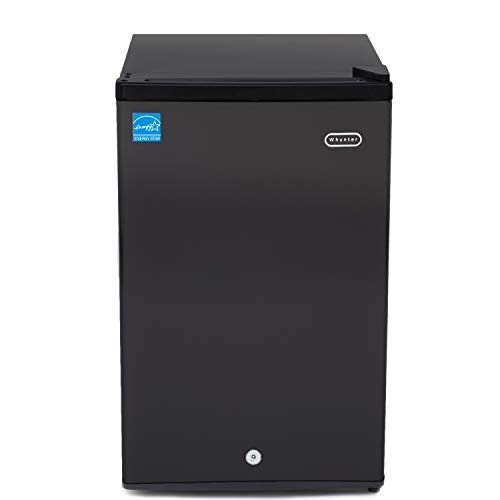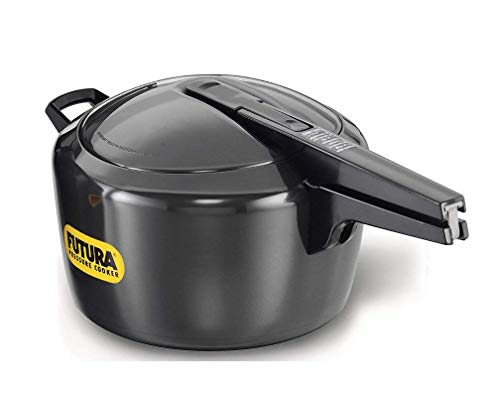

If you love cooking with beans, you probably know that kidney beans are a versatile and delicious addition to any dish. However, cooking kidney beans can be a time-consuming process. Luckily, with a pressure cooker, you can drastically reduce the cooking time and still enjoy perfectly cooked kidney beans.
One crucial step before cooking kidney beans in a pressure cooker is soaking them. Soaking helps to soften the beans, reduce cooking time, and make them easier to digest. It also helps to remove any dirt or debris that may be present on the beans.
There are two methods for soaking kidney beans: the overnight soak and the quick soak. The overnight soak involves covering the beans with water and letting them soak for at least 8 hours or overnight. The quick soak method involves bringing the beans to a boil, simmering them for a few minutes, and then letting them soak for an hour. Both methods are effective, so choose whichever works best for you.
Once your kidney beans are soaked, it’s time to cook them in the pressure cooker. The cooking time will depend on the size of the beans and the desired tenderness. On average, soaked kidney beans take about 8-10 minutes to cook in a pressure cooker. However, it’s always a good idea to consult your specific pressure cooker’s manual for precise cooking times and instructions.
With a pressure cooker, you can effortlessly cook delicious and nutritious kidney beans in a fraction of the time compared to traditional stovetop cooking methods. So go ahead and experiment with different recipes and enjoy the convenience of cooking soaked kidney beans in a pressure cooker.
Importance of Soaking Kidney Beans
Soaking kidney beans before cooking them in a pressure cooker is an essential step that should not be skipped.
The soaking process helps to break down and remove some of the indigestible sugars and compounds found in kidney beans, making them easier to digest and reducing the chances of gastrointestinal discomfort.
When kidney beans are soaked, they absorb water and swell up, which helps to reduce their cooking time. Soaking also helps to soften the beans, resulting in a creamier texture when cooked.
Additionally, soaking kidney beans can help to remove some of the toxins and antinutrients present in the beans, such as lectins and phytic acid. These substances can interfere with the absorption of nutrients and may cause digestive issues.
Overall, soaking kidney beans before cooking them in a pressure cooker is a simple and effective way to improve their digestibility, texture, and nutritional profile. So make sure to plan ahead and allow enough time for soaking to get the best results when cooking kidney beans.
Benefits of Cooking Kidney Beans in a Pressure Cooker
Cooking kidney beans in a pressure cooker offers several advantages. Here are some of the benefits:
1. Time-saving:
Using a pressure cooker significantly reduces the cooking time required for kidney beans. The high pressure created inside the cooker helps to soften the beans quickly, resulting in a reduced cooking time compared to traditional stovetop methods. This can be especially beneficial when you are in a hurry or have limited time to cook.
2. Retains nutrients:
Pressure cooking preserves more nutrients in kidney beans compared to other cooking methods. The shorter cooking time and sealed environment help to retain the nutritional value of the beans, including vitamins, minerals, and fiber. This makes pressure-cooked kidney beans a healthier option.
3. Improved digestibility:
Soaking kidney beans overnight before cooking them can help reduce the gas-producing compounds in the beans. Pressure cooking the soaked beans further aids in breaking down the complex sugars present in kidney beans, making them easier to digest. This can be particularly beneficial for individuals who experience digestive discomfort when consuming beans.
In conclusion, using a pressure cooker to cook kidney beans offers time-saving benefits, helps retain more nutrients, and improves their digestibility. Consider incorporating a pressure cooker into your cooking routine to enjoy these advantages when preparing kidney beans.
Recommended Cooking Time for Soaked Kidney Beans
When cooking soaked kidney beans in a pressure cooker, it’s important to ensure they reach a safe and deliciously tender consistency. The cooking time will vary depending on your preferred level of tenderness and the specific brand and quality of the beans.
General Guideline
A general guideline for cooking soaked kidney beans in a pressure cooker is to set the cooking time to 6 to 8 minutes on high pressure. This timeframe allows for the beans to become soft and creamy without losing their shape. However, it’s crucial to follow the manufacturer’s instructions for your specific pressure cooker model.
Testing for Doneness
After the cooking time is complete, it’s essential to carefully release the pressure and test the doneness of the beans before consuming. Take a few beans and gently press them between your fingers or taste them to ensure they are cooked to your liking. If they are still slightly undercooked, you can continue cooking them for an additional couple of minutes.
Note: Soaking kidney beans overnight or for at least 8 hours prior to cooking is recommended to help reduce cooking time and improve digestibility. Rinse the soaked beans thoroughly before placing them in the pressure cooker.
Remember to always consult the instruction manual for your specific pressure cooker model and adjust the cooking time accordingly to ensure the best results.
Tips for Cooking Soaked Kidney Beans in a Pressure Cooker
Using a pressure cooker to cook soaked kidney beans can significantly reduce cooking time and help retain their nutritional value. Here are some tips to ensure that your kidney beans are cooked perfectly:
- Soak the kidney beans overnight: Before cooking the kidney beans in a pressure cooker, it is important to soak them overnight. This helps soften the beans and reduce the cooking time.
- Rinse the soaked kidney beans: After soaking the kidney beans, rinse them thoroughly under running water. This helps remove any dirt or impurities that may be present.
- Add enough water: When cooking soaked kidney beans in a pressure cooker, ensure that there is enough water to fully submerge the beans. This will help them cook evenly.
- Do not overfill the pressure cooker: To prevent the beans from sticking to the lid or clogging the steam vent, it is important not to overfill the pressure cooker. Follow the manufacturer’s instructions for the maximum fill line.
- Use the appropriate cooking time: The cooking time for soaked kidney beans in a pressure cooker can vary depending on the type and age of the beans. Consult the pressure cooker manual or recipe for the recommended cooking time.
- Release the pressure naturally: After the beans are cooked, allow the pressure to release naturally. This helps ensure that the beans are fully cooked and tender.
- Season to taste: Once the kidney beans are cooked, you can season them with salt, spices, and herbs according to your preference. Adding these ingredients at the end of the cooking process will enhance the flavor of the beans.
By following these tips, you can enjoy perfectly cooked soaked kidney beans that are nutritious and delicious!
FAQ
How long do you cook soaked kidney beans in a pressure cooker?
In a pressure cooker, soaked kidney beans typically cook in about 20-25 minutes.
What is the recommended cooking time for soaked kidney beans in a pressure cooker?
The recommended cooking time for soaked kidney beans in a pressure cooker is around 20-25 minutes.
Can you cook soaked kidney beans in a pressure cooker for too long?
Yes, if you cook soaked kidney beans in a pressure cooker for too long, they may become mushy or overcooked.
Is it necessary to soak kidney beans before cooking them in a pressure cooker?
Yes, it is recommended to soak kidney beans before cooking them in a pressure cooker to reduce cooking time and make them easier to digest.
How long should you soak kidney beans before cooking them in a pressure cooker?
It is recommended to soak kidney beans for at least 6-8 hours or overnight before cooking them in a pressure cooker.








